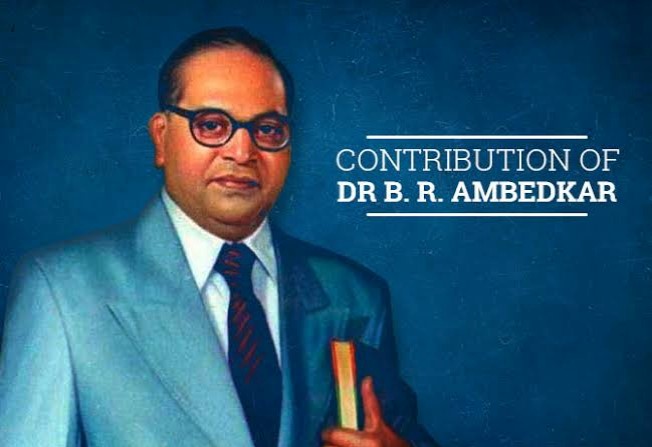This post delves into the context why Dr. Ambedkar advocated for caste reservations and his vision for affirmative action in India.

The term “caste reservations” in India often sparks heated debates, conjuring images of quotas in jobs and educational institutions. While these quotas are the visible manifestation of the policy, understanding the profound rationale behind them requires us to delve into the thought of its chief architect, Dr. Bhimrao Ramji Ambedkar. For Dr. Ambedkar, reservations were never merely about numbers; they were a crucial tool in a larger battle against systemic injustice and a vital step towards a truly egalitarian society. To grasp his vision, we must look beyond the contemporary debates and understand the foundational principles that fueled his advocacy
The bedrock of Dr. Ambedkar’s argument for caste reservations lay in the stark reality of historical injustice. For centuries, the caste system in India relegated millions, particularly those belonging to the Scheduled Castes (formerly known as “untouchables”), to the margins of society. They faced brutal discrimination, social ostracization, and were denied basic human rights, including access to education, economic opportunities, and even public spaces.
Dr. Ambedkar saw reservations not just as a measure for present equality, but as a necessary act of restorative justice, an attempt to redress the accumulated disadvantages stemming from this long history of oppression. He understood that simply proclaiming equality in a constitution wouldn’t suffice when the playing field itself was so unevenly tilted by centuries of systemic bias. Reservations, in this light, were a way to begin breaking the intergenerational cycle of disadvantage that the caste system had perpetuated.
Central to Dr. Ambedkar’s thinking on caste reservations was the critical need for ensuring representation and political power for these historically marginalized communities. He keenly understood that without a voice in the political process, the concerns and interests of the Scheduled Castes would continue to be ignored. Initially, he advocated for separate electorates, believing that only by electing their own representatives could these communities exercise genuine political agency.
While the Poona Pact led to the adoption of reserved seats within joint electorates, the underlying principle remained the same: guaranteeing a voice for the voiceless in the halls of power. For Dr. Ambedkar political empowerment was not an end in itself, but a crucial means for these communities to advocate for their rights, challenge discriminatory practices, and influence policy-making in their favor.
Dr. Ambedkar also championed caste reservations as a vital tool for leveling the playing field. He famously used the analogy of a race where some participants have been deliberately shackled or held back for generations. Simply removing the shackles at the starting line wouldn’t guarantee a fair race. Reservations, in this context, were envisioned as a way to provide a more equitable starting point by ensuring access to opportunities in education and public services – domains historically denied based on caste. He recognized that without such affirmative action, the deeply entrenched social hierarchies and power structures perpetuated by the caste system would continue to disadvantage the Scheduled Castes, regardless of their individual merit.
The argument against caste reservations often invokes the principle of meritocracy. However, Dr. Ambedkar’s perspective offered a nuanced understanding of merit. He argued that true merit can only be assessed when everyone has an equal opportunity to develop their potential. For communities historically denied access to education and resources, the concept of a level playing field based solely on individual achievement was a myth. Reservations, in his view, were not about disregarding merit but about creating the conditions under which true merit could emerge and be recognized from all sections of society. By providing initial access and support, reservations aimed to enable individuals from marginalized communities to compete effectively and contribute their talents to the nation.
While a definitive statement on the permanent nature of caste reservations is debated, the underlying principle for Dr. Ambedkar was its conditional necessity. His ultimate goal was the annihilation of caste, a society where such discriminatory structures would cease to exist. In such an egalitarian future, the need for reservations would naturally wither away. Therefore, reservations were not intended as a perpetual crutch but as a temporary, albeit crucial, mechanism to dismantle the deeply rooted inequalities of the caste system and pave the way for genuine social justice.
In conclusion, Dr. Ambedkar’s advocacy for caste reservations transcended the mere allocation of quotas. It was rooted in a profound understanding of historical injustice, the necessity of political empowerment, the imperative to level a fundamentally unequal playing field, and a vision of a truly meritocratic and casteless society. To understand the enduring relevance of reservations today, we must move beyond the simplistic debates about numbers and grapple with the powerful principles of justice and equality that lay at the heart of Ambedkar’s transformative vision. His ideas continue to challenge us to reflect deeply on the meaning of equality and the measures necessary to achieve it in a society scarred by centuries of caste-based discrimination.
